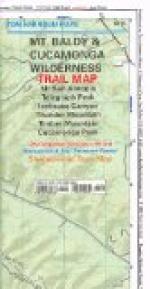Under Herb’s guidance that march was made with singularly few hardships. He managed to hire a “jumper” from a new settler who had a farm a couple of miles from their camp. This contrivance was a rough sort of sled, formed of two stout ash saplings, and hitched to a courageous horse. The “jumper’s” one merit was that it could travel along many a rough trail where wheels would be splintered at the outset. But since, as Herb said, it went at “a succession of dead jumps,” no camper was willing to trust his bones to its tender mercies. However, it answered admirably for carrying the tent, knapsacks, and trophies of the party, tightly strapped in place, including Neal’s bear-skin, which was duly called for, and the moose-antlers, more precious in Dol’s sight than if they had been made of beaten gold.
Thus the campers journeyed homeward with their backs as light as their spirits, caring little for the chills of a couple of nights spent under canvas and rubber coverings.
Two gala evenings they had,—one with Uncle Eb in his bark hut near Squaw Pond, where they were regaled with a sumptuous supper, for “coons war in eatin’ order now;” and the second with Doctor Phil Buck at his little frame house near Moosehead Lake.
Dear old Doc was as ever a power,—a power to welcome, uplift, entertain.
The campers sought him immediately on their arrival at Greenville; and he stood by them while Cyrus made a full statement before the local coroner about the death and burial of the half-breed, Chris Kemp, the Farrars and Herb confirming what was said with due dignity.
But dignity was blown to the four winds by the very unprofessional and very woodsman-like cheer that Doc raised, and that was echoed thunderously by Joe Flint and a few other guides and loungers who had collected to hear the story, when Cyrus described the splendid rush which Herb made, with the dying man in his arms, and the clay of the landslide half smothering him.
“I’m sorry I wasn’t near to try and do something for the poor fellow,” said the doctor, later on, when his friends were gathered round a blazing wood-fire in his own snug house. “But I doubt if I could have helped him. I guess he was born with the hankering for whiskey, and when that is in the mongrel blood of a half-breed it is pretty sure to wreck him some time. We must leave him to God, boys, and to changes larger than we know.”
“I’ve a letter for you, Neal,” added the host presently in a lighter tone. “It was directed to my care. It is from Philadelphia, from Royal Sinclair, I think.”
Neal slit the envelope which was handed to him, and read the few lines it contained aloud, with a longing burst of laughter.
Royal was as short with his pen as he was dash-away with his tongue. The letter was a brief but pressing invitation to Cyrus and the Farrars to visit their camping acquaintances of the Maine wilds at the Sinclairs’ home in Philadelphia before the English boys recrossed the Atlantic.




